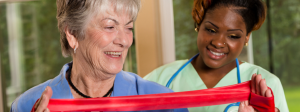Because of the distance to travel, busy careers and other family commitments, many of you do not have enough time to check up on your aging parents or grandparents on a regular basis to make sure they are managing well at home. However, when you do find the time to visit, especially over holiday seasons, you may be shocked by what you find. For many of you, there will come a time when you will need to make a decision about how to best care for your aging parents or grandparents. How do you know when it is time to consider more care for your loved one?
Is it a matter of completing basic tasks?
Has your parent’s home become increasingly cluttered? Have they stopped caring for their personal appearance or seem to have other problems with basic hygiene? Are there signs of hording? Are they having difficulty remembering to pay their bills?
Is it a matter of safety?
Does your parent/grandparent have unexplained bruising? Have they developed a problem with their balance or mobility? Are there new scrapes and dents on their car? Have you noticed any signs that they are becoming forgetful? Are they leaving the stove on or door unlocked when they leave the house? When safety is an issue, it is important to have someone on-hand to make sure that your loved one is safe while at home, and there to help in case of an accident.
Is it a matter of health?
Is your loved one forgetting to take their medications, or forgetting what the right dosages are? Have they recently lost a lot of weight? Is there rotten and spoiled food around the house?
If you are experiencing any of these issues and you are not sure on what to do and where to start you may want to consider sharing your situation with professionals in the field. Please consider as an option, visiting a family doctor or a geriatric specialist who can advise you on your situation.
Remember, it may require “you” to make the difficult first step in getting help for a loved one. Admitting that one needs help is sometimes the last thing a parent or grandparent will admit to for several different reasons. Our seniors today come from a proud generation where problems were to be dealt with at home and not shared with the public and most often than not they are in complete denial or unaware of their situation. Approach the conversation with sensitivity and respect, and remember that your loved ones’ health and safety are the most important things.

